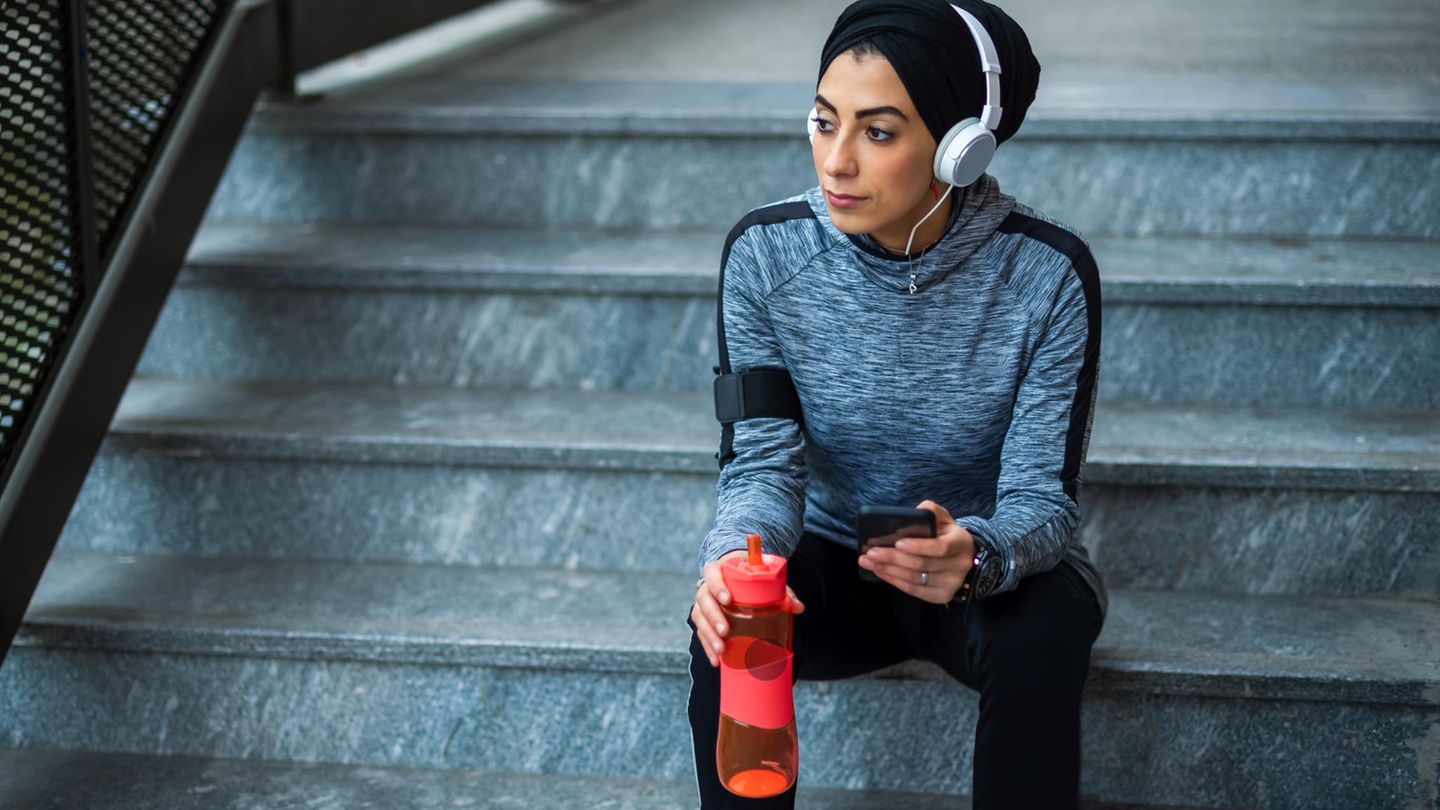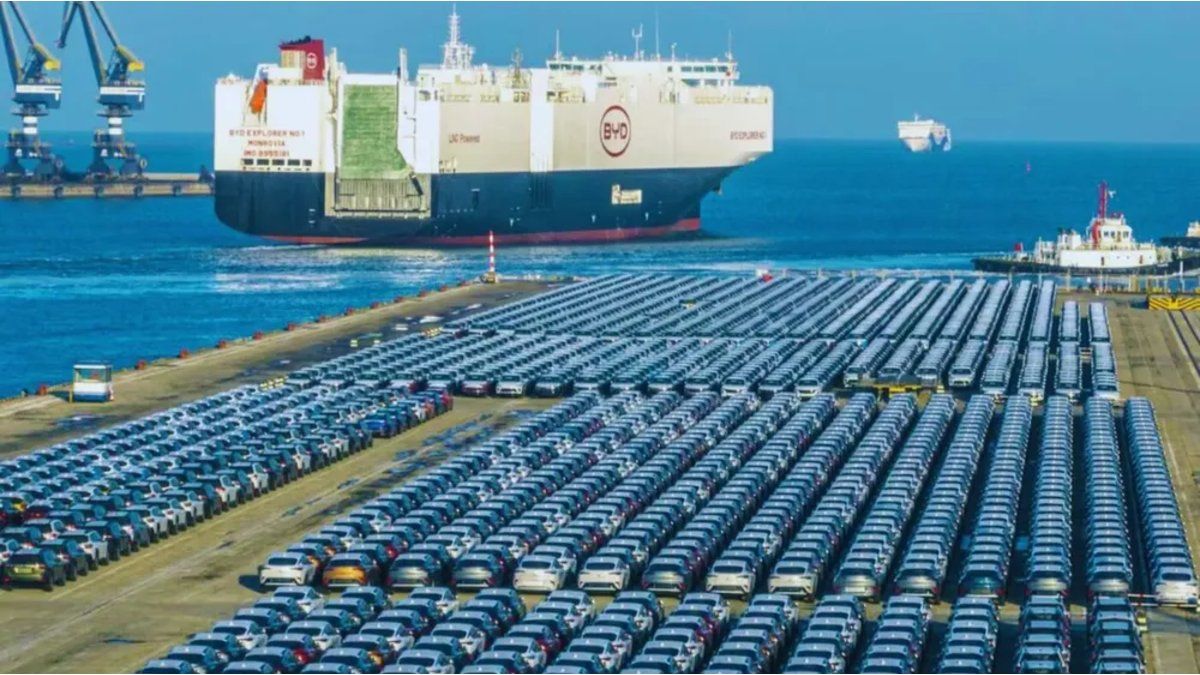Normal functional clothing is usually made of synthetic fibers and chemicals are added to make them windproof or water-repellent. This makes it particularly practical for outdoor activities – but (mostly) it has nothing to do with sustainable sports fashion.
Breathable clothing is a must-have for many athletes, as it transports sweat away from the body and ideally still keeps it warm. On cold or rainy days, it protects the wearer from cooling down. What many do not know, however, is that the more functions sports fashion has, the higher the probability that it was mixed with chemicals and not produced in an environmentally friendly manner. But what exactly is sustainable clothing? And how do laypeople know whether sportswear has been produced fairly?
Explanation: This is what distinguishes sustainable sports fashion
First things first: When it comes to sustainability, it is not a question of what materials the sportswear was made of – but under what circumstances. In other words, was the clothing produced in an environmentally friendly and fair manner? In addition to the production method, three factors play an important role:
- animal welfare (if leather has been processed)
- fair payment and treatment of employees
- the use of raw materials from sustainable cultivation
In order to make normal functional clothing more resistant to wind and weather, it is usually processed with chemicals: Depending on the manufacturer, substances that are harmful to health (paint or bleach) are sometimes used, which can cause skin irritation. Sustainable sportswear, on the other hand, is produced in an environmentally friendly way, regardless of whether it is made of artificial or natural fibers (such as silk or organic cotton). For example, merino wool is a popular material for sportswear that warms the body when it’s cold – and cools it when it’s warm. And completely without chemical additives.
Eco seal: This is how you recognize sustainable sports fashion
There are various eco-seals that differ from one another as follows:
|
Siegel |
background |
|
Global Organic Textile Standard |
|
|
Fair Wear Foundation |
|
|
Bluesign Product |
|
|
Oeko-Tex Standard 100 |
|
|
Oeko-Tex Made in Green |
|
Sustainable sports fashion: six brands in comparison
If you are interested in sportswear that has been produced sustainably, these six brands are recommended:
1. Vaude
“Green Shape” is the label for sustainable sports fashion from the Vaude brand, which is based in Tettnang on Lake Constance: It stands for sustainable materials, resource-saving manufacturing and fair production. In addition, 80 percent of the manufacturer’s sports and outdoor clothing has a bluesign certificate. It is particularly exciting that many products are made from recycled PET bottles, old clothes or old fishing nets.
2. Spoonbill
Biking, running, outdoor and winter sports: The Löffler company from Austria is also a well-known manufacturer of functional sportswear. When it comes to sustainability, the company says that the majority of the textiles come from its own knitting mill. In addition, all yarns, fabrics, zippers and fabric finishes that have been purchased should be labeled with the “Oeko-Tex Standard 100” seal – and thus be low in pollutants.
3. Patagonia
Sustainable sports and outdoor clothing is also available from Patagonia. The manufacturer also relies on sustainable materials (for example hemp, organic cotton, recycled polyester or nylon) and chemical-free processing of tops and T-shirts, long sleeves and functional underwear or leggings. In addition, many products are Bluesign-certified – and the brand supports various environmental organizations.
4. Mammut
This manufacturer was honored in 2013 with the “Best Practice Award” from the Fair Wear Foundation, which advocates better working conditions in the clothing and textile industry. The high-priced brand primarily manufactures products for the mountains, climbing, outdoor and snow sports. The range now includes more than 35,000 items – including, of course, sustainable sportswear for hiking and trekking. You can find tips on the right hiking outfit here.
5. Mandala
In contrast to the first three labels, the Bavarian company Mandala focuses on sustainable yoga clothing (such as leggings and sports bras), which – according to its own statements – is made under fair working conditions. It is made from organic cotton, tencel, modal, organic polyamide and polyester that has been recycled. The company’s own textile factories are located in Turkey and Shanghai.
6. Trigema
Last but not least in this list: the Swabian label Trigema, whose sustainable sportswear and casual wear for women, men and children is produced in Germany and also bears the “Oeko-Tex Standard 100” seal. A large part of the collection is made from synthetic fibers – with the exception of the Trigema Change line: According to Trigema, organic cotton is used here.
Sources: ,
This article contains so-called affiliate links. Further information are available here.
Source From: Stern
I have been working in the news industry for over 6 years, first as a reporter and now as an editor. I have covered politics extensively, and my work has appeared in major newspapers and online news outlets around the world. In addition to my writing, I also contribute regularly to 24 Hours World.




